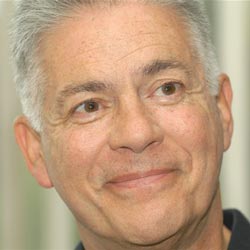The warped signal that carried the sounds of late-night jazz from downtown Philly lulled me to sleep each night. I kept the battery-operated radio close to my pillow: My parents arose at 5 and neither would support my nocturnal listening habit, especially if they knew it increased my longings for a world outside of tiny Center Square, Pa. – now easily folded into nearby Blue Bell, a tonier, more historic town.
Within my first weeks of high school, an overzealous teacher entered me into a Temple University speech contest. Feelings of terror and uncertainty mixed with a desire to please were rewarded with a commendation at the event. But the real reward came on the train ride home through an invitation from four rowdy college students to join them at a party.
What I had discovered at Temple that morning was reinforced at the party: There was, indeed, a wider world “out there” even beyond the radio sounds, far beyond my parochial school background … and I determined then to be part of it in any way I could.
Despite an innate shyness born of insecurity and mixed self-esteem, I later opted for a New England college, followed by a full ride for an MFA at a well-known drama school in the nation’s capital. Halfway through a first-semester exam (I had chosen to read all the parts from Christopher Fry’s “The Lady’s Not for Burning” for a test in oral interpretation), I looked out into the dark theatre for my professor.
“Mark,” I called, “are you bored?”
After a few beats of silence, he responded. “No. Why are you asking?”
“Well, I am,” I retorted. “I think I don’t want to be here. I want to leave for New York.”
I went back to the dorm, packed and left before dawn. Within a week, I had posed for headshots, signed with an agent, and had two auditions for commercials. I found these “real world” assessments of my skills so painful and terrifying that I never went to a third. I began work the next week at United Artists Television writing copy.
Over the next 40 years, I lived in every up-and-coming neighborhood in the Big Apple. As soon as an area became “gentrified” or “the place to be,” I moved on. I learned that I thrived on the adrenaline of the unexpected, the serendipitous.
The same gestalt overarched my career: consistently good work reflected in 30 awards for writing/editing mingled too easily distress and disease with the predictable “process” that comes from getting along for its own sake and not in the name of excellence.
While watching “Darling,” the 1965 British film (directed by John Schlesinger, and starring Julie Christie, Dirk Bogarde and Laurence Harvey) in a small Vermont movie house, a line spoken by Christie as Diana Scott to Dirk Bogarde, hit me like a thunderbolt. She justifies her infidelities, telling him that she always feels there is another corner to be turned. To me, it encapsulated the free-floating, ubiquitous dissatisfaction that I had experienced for most of my life.
And so it was that at 3 a.m. one Sunday morning at a Chelsea coffee house, I sat having breakfast as the throngs were coming in from the clubs and others tooted up for the after-hours bars. Looking up I realized in a coming-of-age instant that I had stayed too long at the fair. I had grown too old for the scene – which concurrently also became too expensive despite a six-figure salary. It was time to turn another corner.
By noon that same day, I arrived in a town called Cobleskill, where I had never been (nor heard of), and by 4 p.m. I had purchased a small house on a lake. I had returned “home” to the countryside after all these years on the road -– but this time, it was in a small town in the northern Catskills. I would retire, I assumed. I would write.
What I had not accounted for was the sense of remoteness, of being cut off, that I encountered. I knew I would move again. After exploring the Capital Region, I knew that Schenectady would be around the next corner – not just to be near Proctors, where I had come to work, but as a jumping point for the arts and culture scene that flourishes throughout the region. The changes that I had come to witness over the five-year span of driving in/out of Schenectady to events at Proctors made me want to be part of its resurgence.
The sense of anticipation is exhilarating as I pursue experiences of The Electric City kind. I plan to report on progress as the house sells, as I find a new home (actually want to live in an apartment at this point in my life), and what happens along the way. Care to follow?
Writer-editor-publicist Thom O’Connor is a former executive director of the Landis Arboretum in Esperance. After living and working in the New York City area for many years, he resides in Richmondville – for now.


